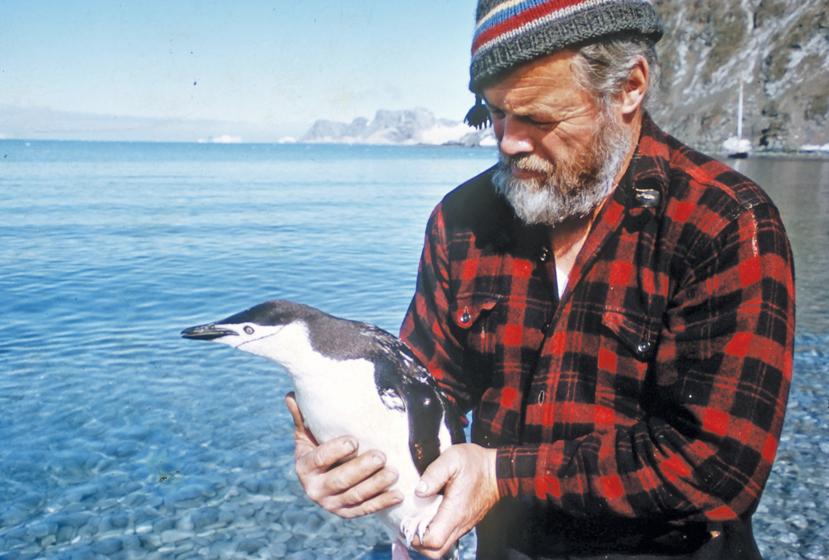Towards the end of Tyler J. Kelley and Araby Williams’ documentary Following Seas, Nancy Griffith smilingly recalls filling out a census form that asked whether she owned a washing machine or television. Griffith proudly answered “no” to both because she and her family spent most of their lives on a boat–at one point circling the globe around the edges of Antarctica. Anyone reading that form “would have thought we were bums on the street,” Griffith says. “And yet we were living the best possible lives we could live.”
That sense of revelry in conditions that would terrify most other human beings pervades the fascinating Following Seas, which screens March 25 at the 55th Ann Arbor Film Festival. The film opens with the stunning story of Griffith, husband Bob, and young son Reid getting shipwrecked on a tiny, donut-shaped island in French Polynesia. The family enlists the help of two prisoners marooned on the island to salvage their boat’s engine, using a hoist made from scratch, before being rescued–and briefly questioned under suspicion that they were nuclear spies. It’s one wild story after another from there, most told by the elderly Griffith with good humor and a persistent enigmatic smile.
Perhaps even more remarkable than the Griffiths’ adventures is how thoroughly they were documented. Most of the tales recounted in the film took place in the ’60s and ’70s, and at first it appears that the filmmakers have matched period-appropriate bits of stock footage to her stories. In fact, the Griffiths shot much of the footage themselves, for a series of documentaries they produced to help finance their adventures. By combining Griffith’s tales with footage the family shot decades ago, Kelley and Williams struck gold. Following Seas is a compelling tribute to lives lived beyond society’s traditional borders, laced with bittersweet nostalgia.
There’s an entirely different brand of isolation at play in Thorsten Trimpop’s documentary Furusato, which screens March 26. The film is a sobering look at life in the Japanese town of Minamisoma, contaminated by radiation from the 2011 disaster at the Fukushima Daiichi nuclear power plant. Over four years of work in Minamisoma, Trimpop collected a broad variety of unsettling stories. Two men in biohazard gear scrape radioactive dust off the side of a road, expressing what they admit to be a vain hope that they might protect the lives of children taking the route to school. A horse breeder frets over horses suddenly gone lame, or that died and were left to rot in their fields because government officials never showed up to inspect the corpses. And elderly citizens throw up their hands at the health risks of continuing to live in Minamisoma. “Running away isn’t an option,” one senior says, with the same indelible sadness and desperation visible in the faces of every resident in the film. “All I can do now is wait for my death.” Trimpop creates a detailed, moving record of the long-term implications of a news event many have already forgotten.
Yet another form of profound isolation is the basis for great yearning and wild creativity in Livia Ungur and Sherng-Lee Huang’s film Hotel Dallas, screening March 26. The film probes the legendary soap opera Dallas‘s improbable effect in Romania, where it was the only Western program permitted during the rule of Communist strongman Nicolae Ceausescu. Huang and the Romanian-born Ungur explore Dallas as an aspirational fantasy for impoverished Romanians in a hodgepodge of documentary, narrative filmmaking, and autobiography. The film blends interview footage, a comically politicized reenactment of Dallas character Bobby Ewing’s infamous death and resurrection performed by children, musical numbers, and even a recurring character played by Patrick Duffy, the actor who played Bobby on the original show. To call the film ambitious is an understatement, and it doesn’t all necessarily work. But it does make for a spellbinding and singular approach to an already fascinating intersection between pop culture, politics, and personal struggle. The 55th Ann Arbor Film Festival runs March 21-26.
